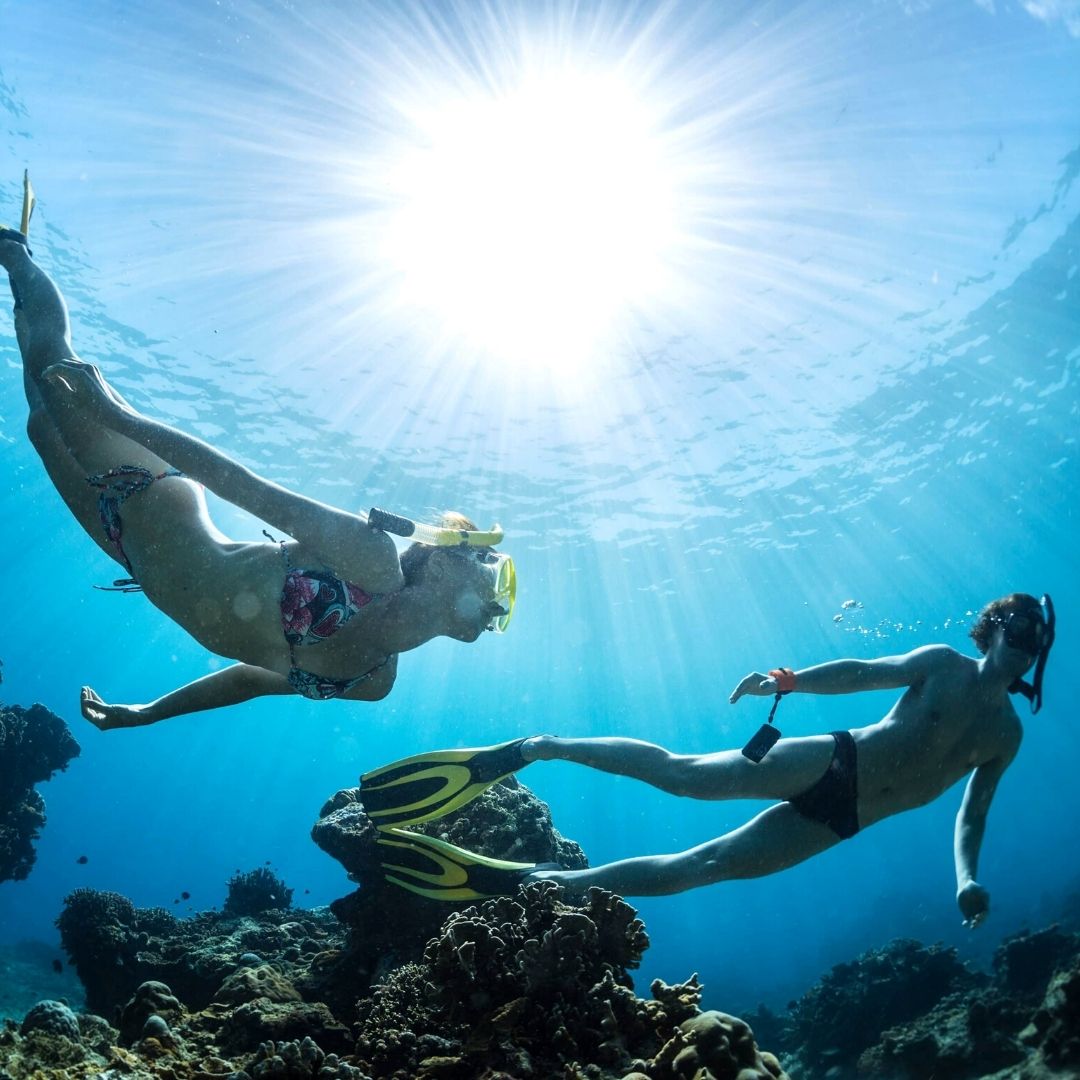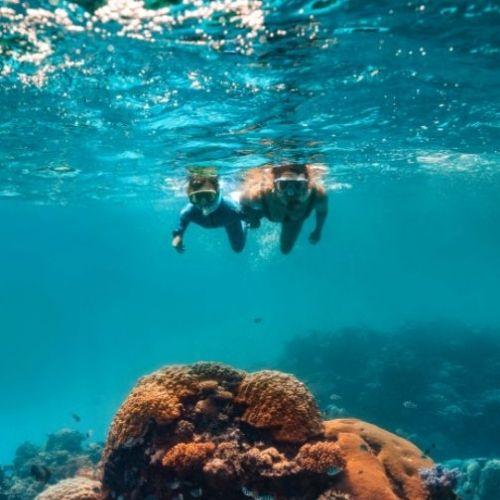Did you know that your sunscreen could be harming coral reefs? Sunscreen is essential to protect yourself from the sun’s harmful UV rays, but not all of them are created equally. That’s why Thailand has become the latest country to enforce a ban on sunscreens that contain coral-damaging chemicals!


Here Are The Four Banned Chemicals
In early August, Thailand’s Department of National Parks, Wildlife and Plant Conservation announced a ban on coral-damaging sunscreens being used in its national marine parks. Thai authorities expressed concerns that too many locals and tourists use sunscreens containing chemicals that are harmful to marine life, and specifically, slow-growing corals.
“Studies have found that several chemical compounds in sunscreen products are harmful to coral larvae, affecting their reproductive systems and causing coral bleaching," said department Director-General, Thanya Nethithammakul.
The 4 banned chemical compounds include: Oxybenzone, Octinoxate, 4-Methylbenzylid Camphor (4MBC) and Butylparaben. Deliberately breaking the rules and using a sunscreen containing these ingredients could land you with a massive fine of around AU$4,100 (100,000 baht)!


These Chemicals Prevent Baby Corals From Developing
While all sunscreens provide our skin with a level of protection against the sun’s rays, not all of them are reef-safe. This means that when we apply our sunscreen and swim in the water, some of the chemicals that wash off are potentially toxic to marine life.
Between 6,000 and 14,000 tonnes of sunscreen lotion winds up in coral reef areas each year.
Oxybenzone is a chemical that’s typically found in many sunscreens — but what’s astonishing is just how deadly it is to the development of young corals! For context: a single drop of oxybenzone in six and a half Olympic-sized swimming pools worth of water is enough to cause fatal coral bleaching. That’s why similar bans have been introduced by the Pacific Island of Palau and the US state of Hawaii.


What Are Reef-Safe Sunscreens?
You’re probably wondering — how can I ensure that my sunscreen isn’t going to harm coral reefs and other marine life? Luckily, there’s an alternative to chemical-based sunscreen that’s better for your skin and better for the ocean.
Mineral sunscreens that contain zinc oxide or titanium dioxide provide a physical barrier between the sun’s UV rays and your delicate skin. They’re safe, effective, and they won’t harm the marine life around you.
That’s why, according to Thanya Nethithammakul, “Divers are now encouraged to use zinc oxide-based sunscreen products which are found in studies to be safe for marine creatures”. Roughly 80 to 90 per cent of tourists visiting Thailand’s marine national parks will go diving, so to avoid confusion, the marine park tour operators will explain the ban ahead of time to visitors.
Flora & Fauna’s Reef-Safe Sunscreens
Searching for a reef-safe sunscreen for the warmer months? No problem! All of Flora & Fauna’s Sun Protection Products are reef-safe and mineral-based.
We’re so excited for you to try our brand new Green + Kind Natural Sunscreen SPF50 (100ml) — it’s formulated with zinc oxide and avocado oil to protect and nourish your face and body! It’s a reef-safe formula with NO oxybenzone, octinoxate or parabens. One of our best-selling sunscreens — the SunButter SPF 50 Sunscreen — is water-resistant for 4 hours, reef-safe, palm oil free, cruelty-free, vegan, and comes packaged in a handy little plastic-free tin which is perfect to pop in your beach bag! We also love the Simple As That SPF30 Sunscreen due to its non-greasy finish. This sunscreen has been specially formulated by a pharmacist to provide high protection from the sun; using zinc oxide as its active ingredient.
What do you think of this chemical sunscreen ban? It isn’t widespread yet, but we hope more marine parks and coastal areas implement the ban. It’s such a simple and straightforward way to protect our coral reefs that are already struggling due to climate change and poor water quality.
For more information about mineral-based and reef-safe sunscreen, make sure you check out the blogs below!


